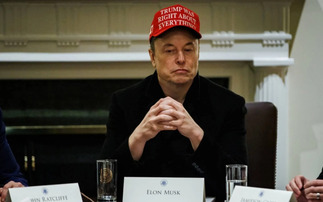The moral imperative to act on climate change isn’t new. Since the 1970s, climate research has warned of the impact global warming could have on the planet and called for coordinated action to address it.
Almost five decades later, as COP26 takes place in Glasgow, the demand for meaningful action to address the climate crisis is intense. The anticipation ahead of COP26 was greater than it has been before previous meetings. This is partly driven by awareness campaigns from activists like Greta Thunberg, but also the increasingly visible impact of climate change in the form of wildfires, irregular weather patterns, floods and drought. As a result, the world's political leaders are being called upon by media, scientists and campaigners to act with a sense of moral urgency. But after half...
To continue reading this article...
Join Investment Week for free
- Unlimited access to real-time news, analysis and opinion from the investment industry, including the Sustainable Hub covering fund news from the ESG space
- Get ahead of regulatory and technological changes affecting fund management
- Important and breaking news stories selected by the editors delivered straight to your inbox each day
- Weekly members-only newsletter with exclusive opinion pieces from leading industry experts
- Be the first to hear about our extensive events schedule and awards programmes









